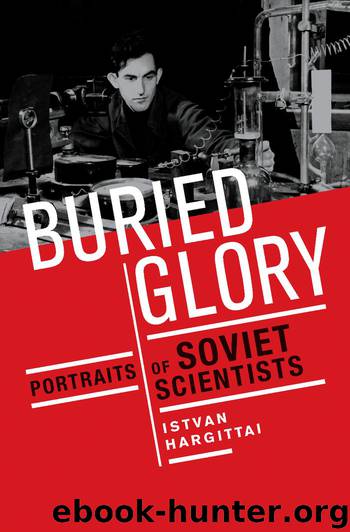Buried Glory by Hargittai Istvan;

Author:Hargittai, Istvan;
Language: eng
Format: epub
Publisher: Oxford University Press, Incorporated
Published: 2013-03-14T16:00:00+00:00
Alexei Abrikosov and his third wife in 2004 in their home in Lemont, Illinois.
Source: Photograph by and courtesy of the author.
Abrikosov had always had heroes, but they changed over time. In this, as in many other aspects of life, he had a utilitarian approach. In his old age, Niels Bohr became his hero because Bohr continued doing physics almost until his death. According to Abrikosov, “There is illness in old age, on the one hand, the abilities of a person decrease, on the other hand, his self-esteem increases; he may think that what he can do now is only great work. Of course, this is not the case and such people usually do not produce anything. Bohr had a different attitude. He worked for fun, not fame, and with that attitude, he could work any time. I am doing exactly the same.”23
For all his flamboyance, Abrikosov was careful not to get involved in political dissidence. He respected political activists, such as Sakharov, but considered them to be fighting for a lost cause. He never wanted anything to do with lost causes; he wanted to do physics, and any political involvement with “lost causes” would have interfered with it. He was suspicious in the eyes of the authorities, not for any political action, but because of his marriage to a foreigner. They found him “unmanageable.”24 This is how Abrikosov summarized his personal philosophy: “I was independent. My mother was clever and able, but she was also very hard, even dictatorial, and for this reason, from my very childhood, I wanted independence. I learned to fight for my independence. At the same time, I was smart and I did not do foolish things. In science, I could have a choice and Landau encouraged it, so I chose my own way. Think thoroughly about various things and choose your own way. For a career, for publications, it is harder, but it is also more enjoyable.”25
At the age of eighty-five, with failing eyesight and in fragile health, I wonder whether Abrikosov’s quite skeptical outlook on life has deepened. He appeared taciturn in our latest exchange of e-mail messages. It is remarkable that having come to the United States in his mid-sixties, he could still make a career in his new environment. However, once he has passed his creative period, he and his wife might find themselves quite lonely. I wonder if he thinks about what it would have been like to spend his twilight years in Russia. For some reason, Lyndon Johnson’s words (and I forget their source) when he decided to return to Texas after his presidency come to mind. He wanted to go there to exchange his loneliness for a place where “they know when you’re sick and care when you die.” In 2004, Abrikosov appeared very hardened to me in his determination not to go back to Russia, ever. I wonder if he has ever wavered in his determination.
Download
This site does not store any files on its server. We only index and link to content provided by other sites. Please contact the content providers to delete copyright contents if any and email us, we'll remove relevant links or contents immediately.
Hit Refresh by Satya Nadella(8350)
When Breath Becomes Air by Paul Kalanithi(7284)
The Girl Without a Voice by Casey Watson(7276)
Do No Harm Stories of Life, Death and Brain Surgery by Henry Marsh(6346)
A Court of Wings and Ruin by Sarah J. Maas(6135)
Hunger by Roxane Gay(4241)
Shoe Dog by Phil Knight(4194)
Everything Happens for a Reason by Kate Bowler(4079)
A Higher Loyalty: Truth, Lies, and Leadership by James Comey(4047)
The Rules Do Not Apply by Ariel Levy(3924)
Tuesdays with Morrie by Mitch Albom(3852)
The Immortal Life of Henrietta Lacks by Rebecca Skloot(3838)
How to Change Your Mind by Michael Pollan(3693)
Millionaire: The Philanderer, Gambler, and Duelist Who Invented Modern Finance by Janet Gleeson(3584)
All Creatures Great and Small by James Herriot(3532)
Elon Musk by Ashlee Vance(3464)
Tokyo Vice: An American Reporter on the Police Beat in Japan by Jake Adelstein(3451)
Man and His Symbols by Carl Gustav Jung(3336)
The Money Culture by Michael Lewis(3300)
